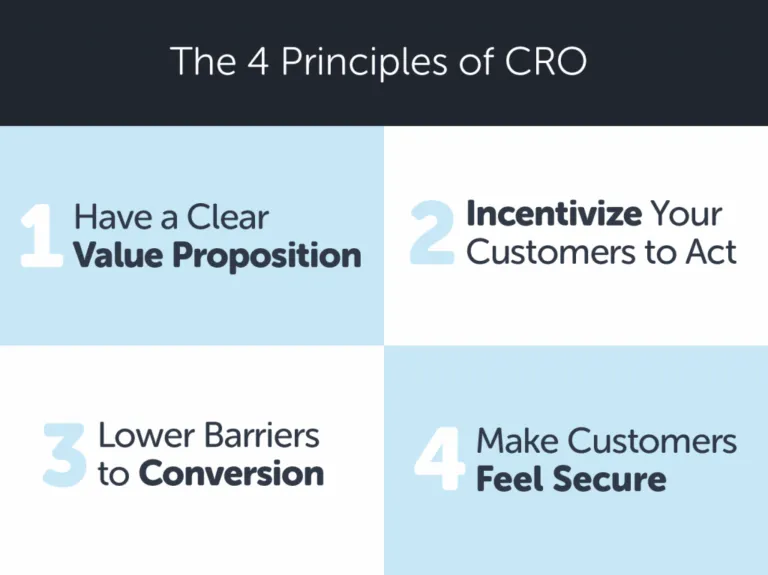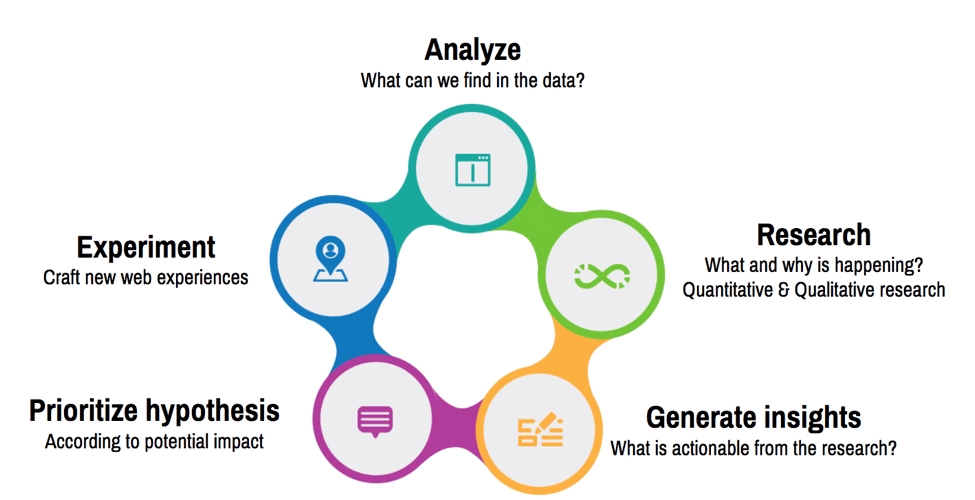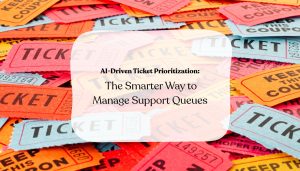When you’re running a startup, every conversion is a major victory. But the economic environment is also more competitive than ever before. For many executives, it may even seem like a new competing company crops up every single day.
No matter how niche your sector is, you’ll have to outperform the competition to acquire new customers and carve out your place in the industry. The more you can optimize conversion rates, the more often people visit your website and convert into paying customers.
But how can you optimize conversion rates across the board? Turns out, the secret lies in user psychology. Today, let’s break down five actionable psychological tactics you can leverage to optimize your business’s conversion rates.
Why does CRO matter?
Conversion rate optimization involves maximizing the percentage of people who view your website or online store and become customers. This doesn’t count anyone who visits the site but doesn’t buy, subscribe, etc. Any business that wants to thrive in the modern economic environment needs to practice CRO as much as possible.

Doubling down on conversion rate optimization allows you to make the most of your current budgetary constraints or limitations. No matter how much time and resources you have to spend on marketing, customer acquisition, and other facets of conversion, CRO allows you to make the most of your budget and invest in your customer satisfaction.
Even better, conversion rate optimization isn’t that hard to practice. In many cases, it’s simply a matter of practicing your current marketing or web design efforts as efficiently and effectively as possible. In many ways, CRO means maximizing the return on your marketing investments.
How do you optimize your conversion rate?
In a nutshell, you can optimize conversion rates by focusing on user psychology. At a certain point, it doesn’t matter how much money you throw at your potential customers. All that matters is how well you use your available resources.
Psychology allows you to get into the mind of your target audience and market to them as effectively as possible. Practicing CRO, therefore, means leveraging psychological tactics in conjunction with conventional marketing strategies. With that said, let’s break down some actionable psychological tactics you can use to optimize conversion rates on your website.
Tell a story
First and foremost, you need to be telling stories about your brand and your products.
Stories may just be the earliest invention in human history. We’ve been telling each other stories around the campfire for generations. More recently, stories have expanded to include novels, movies, and more. But stories are not just the domain of the creative.

Indeed, you can also leverage stories to optimize conversion rates. When customers understand the story of your company or product, they are much more likely to make a purchase because they know why you and your product exist. It helps build and maintain brand reputation so you can make genuine connections.
As online marketer Caroline Forsey with Hubspot notes, “A positive brand image can undoubtedly influence a consumer’s decision to buy a product — and, for virtually every business, building a positive brand image starts online. Since brand image makes such an impression on someone’s decision to purchase, you must regularly monitor your reputation online. Still, it can feel like a daunting task, particularly when so much of it is out of your control.”
With that in mind, every story you tell needs to have two major factors:
- Why your brand made the product
- Why your product is the best solution for whatever problem it is designed to solve
You can tell the story of your brand and your products in your marketing copy, your “About Us” page, and similar spots on your website. However, just be sure to hire someone who writes stories well – preferably for a living! To guarantee compelling content, be sure to hire a qualified freelance writer. You can expect to pay around at least $20 an hour for a quality freelance writer in the US.
Use the reciprocity principle
The principle of reciprocity essentially means that people feel obligated to do something nice for someone who does something nice for that. You can use this psychological tendency to optimize conversion rates by offering something free to visitors who appear on your landing page for the first time.
As Jeff Bradford, the President and CEO of the Bradford Group says, “On the face of it, the reciprocity principle seems reasonable. After all, don’t you tend to feel good about people who give you a gift? But, is this good feeling a strong enough motivation on which to build a marketing campaign? Yes, it is. I’ve tested it. It works amazingly well, especially for tough sales.”
For example, say that you gain a visitor because of a Google ad you posted a week prior. When the person lands on your website’s front page, you can immediately give them a free coupon for their first purchase. The reciprocity principle will kick in and that visitor will be more likely to buy something to take advantage of the coupon.

You can kickstart the reciprocity principle in other ways as well, including:
- Offering special deals or email marketing bonuses
- Providing attentive customer service online
- Asking for feedback
For some customers, the reciprocity principle is so strong that good branding and service turns them into brand evangelists who provide free marketing for your business for years to come.
Show the satisfaction of others
Most online businesses already know the power of testimonials, and you should use them frequently. Displaying the satisfaction that others have with your brand or products is an important psychological tactic because it tells prospective converts that your brand is already worthwhile and popular.
People are hesitant to be the first ones to try a new company or product. But if 5000 other people have already tried your brand – and you have the testimonials to prove it – new visitors will be more likely to stick around since your product has been tested.
Keep it simple
The human mind isn’t meant to sift through overly complex pages or websites for very long. In fact, if your landing page and the rest of your online store aren’t well laid out, odds are someone will click away from your brand even if they are the perfect customer for your products.
With that in mind, be sure to optimize conversion rates by making sure that your website is well-designed from start to finish. Pages should be in logical locations, and the interface should be clean and navigable.
It is also critical that it loads quickly. The average person will click away from the site if it doesn’t load within one second or so, so be sure that your online shop doesn’t lag behind the competition. You can learn how to speed up WordPress or other platforms using online tutorials.
Your site’s design should also be aesthetically attractive and intuitive. You may wish to hire a professional web developer to get the job done. It’ll be money well spent when your website is so pleasing to surf that visitors turn into converts more often than not. Finally, consider including a live chat suite to promptly help customers with their issues and improve the customer experience
Convey urgency
Last but not least, be sure to use urgency everywhere you can. Humans are hardwired to pay more attention to signs of urgency, and you can demonstrate it with your brand by using powerful words in your marketing and product copy.
For example, using words like ‘soon’ and ‘now’ and phrases like ‘Time is running out, can help inspire people to click through to your site if they see an ad or purchase a product if they think that it’ll be out of stock soon. Then, make it easy for them to act on it with seamless payment integrations that prioritize user experience.
You should also be rotating your products if possible, especially if your brand has a seasonal element. Using advertisements for special sales or deals regularly is also a good move. People love feeling like they’re getting a deal, and in many cases, the opportunity for a special sale can convince someone to make a purchase they wouldn’t have otherwise Done right, urgency can shift a ”make or break” customer moment into a “make” moment!
Use Psychological Tactics to Optimize Conversion Rates
As you can see, there are lots of ways you can psychologically affect your would-be customers and optimize conversion rates. For the best results, you’ll want to combine each of the above strategies in turn with one another rather than just focusing on one or two.
All in all, conversion rate optimization is a marathon, not a sprint. Take your time and build up your website and brand marketing so that it converts as efficiently as possible. Not only will you save money by doing this, but you’ll also make more money from those new converts.




